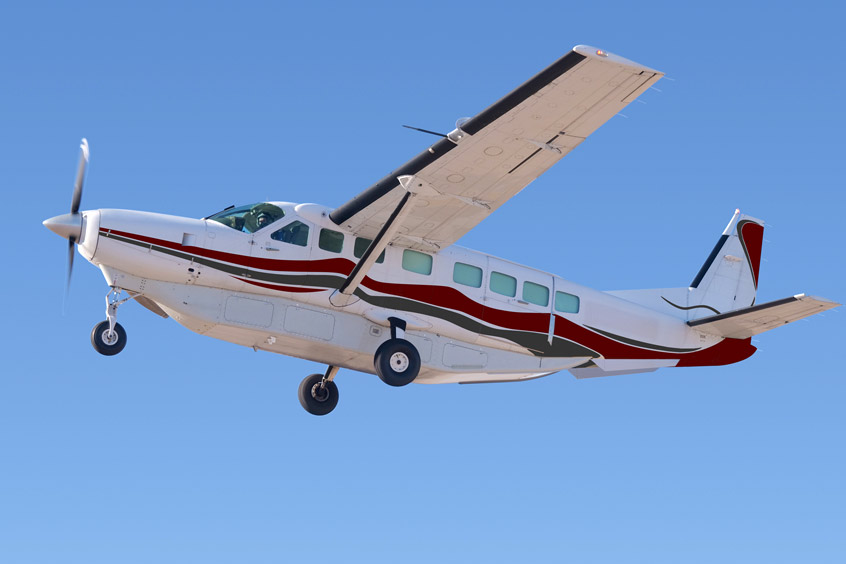ACE 2026 - The home of global charter.
 The bimonthly news publication for aviation professionals.
The bimonthly news publication for aviation professionals.

Raisbeck Engineering, a US provider of performance enhancement systems for business, commercial and military aircraft, has completed comprehensive pre-certification flight tests for its new STC programme, EPIC Caravan, a drag reduction system designed for the Cessna Caravan 208B. Completion of the comprehensive pre-certification flight tests marks a significant milestone and clears the way for STC approval, which the company anticipates receiving in August. The system includes a composite forward cargo pod fairing and metal dual aft body strakes.
“We are in the final phase of pre-certification,” states Hal Chrisman, president of Raisbeck Engineering. “We have completed over 131 flight hours and verified that EPIC Caravan is compliant with all of the required FAA Part 23 regulations. Our next step is to present company test results to the FAA pending issuance of a type inspection authorisation, which we anticipate receiving by mid June. The FAA TIA is an important step towards STC approval, in that it marks the final milestone before the FAA finds compliance of the new system to Part 23 regulations by its own flight tests.”
The EPIC Caravan was designed to address the aerodynamic drag issues associated with the Cessna Caravan 208Bs currently flying with cargo pods. The Cessna Caravan 208B experiences a significant decrease in speed and an increase in fuel burn when equipped with the factory cargo pod. The new drag reduction system weighs in at 38 lbs and addresses the market need to reduce drag and decrease fuel burn. The system offers operators a more cost-effective and environmentally friendly solution by reducing drag in all phases of flight while providing the option to add four to five knots cruise speed at typical cruise power settings or reduce fuel flows and lower ITT by flying the same speed. The lower ITT will reduce engine maintenance cost and the forward cargo pod fairing eliminates the need for a cargo pod de-ice boot, further reducing maintenance costs.
“The EPIC Caravan was designed to fulfil a need in the marketplace for individual operators and fleets around the world flying a wide range of missions,” adds Chrisman. “These new mods have performed exceptionally well during our extensive flight test programme, and we're pleased to be able to bring this new offering to Caravan operators.”
The Cessna Caravan aircraft is renowned for its rugged utility and flexibility delivering a combination of performance, low operating costs and the ability to adapt to a wide variety of operations. Owners, operators and fleet operators in some of the world's most demanding environments have adopted the rugged turboprop for its versatility and reliability.